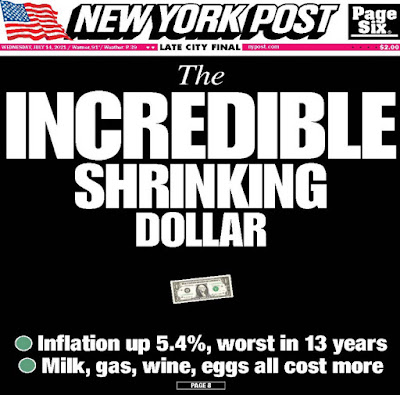Monday, July 26, 2021
Wednesday, July 21, 2021
Monday, July 19, 2021
Wednesday, July 14, 2021
Micro-stresses at work
Move over microaggressions, the smart people at Harvard Business Review now tell us "micro-stresses" are affecting our well-being, depleting us at work, and leaving us exhausted if not burned out.
In an article titled Don't Let Micro-Stresses Burn You Out, HBR's editors report that:
"Stress comes to us all in tiny little assaults throughout the day – what we call 'micro-stresses.' And it's coming from sources you might never have considered. The volume, diversity, and velocity of relational touch points (the way we routinely communicate and collaborate with others) we all experience in a typical day is beyond anything we have seen in history, and cumulatively they are taking an enormous toll on our health and our productivity at work."
HBR goes on to explain how 12 common micro-stresses and the work relationships with our boss, other leaders, peers, clients, team, and our loved ones affect us by:
- Draining personal capacity
- Depleting emotional reserves
- Challenging identity and values
- Listen carefully to your manager to ensure you can execute objectives on time and budget.
- Turn off your phone/browser and all social media and chat.
- Grow up, suit up, show up, and get to it. It's called work for a reason.
Monday, July 5, 2021
Where We're From ~ DNA Will Tell You
In 2005 I purchased Genographic Project DNA tests as Mother's Day and Father's Day presents for my parents that were developed by the National Geographic Society and IBM. My father had been an amateur genealogist for decades and we'd long known nearly 400 years of French Huguenot heritage on his side and about 200 years of Irish heritage on my mother's. The haplogroups and geographic migrations since the Last Glacial Maximum revealed by the tests were unexpected and surprising. My paternal side traced earlier to Kurdistan, Afghanistan, and from Murmansk, Russia on the maternal side.
Such knowledge provides essential perspective and a broader sense of oneness and belonging.





